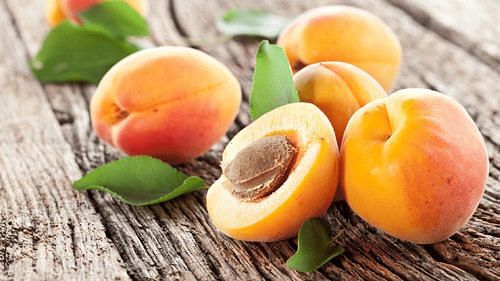Apricot Benefits for Skin
Check out the one-stop guide that will tell you all that you need to know about the benefits of Apricot on your skin.

Our parents and doctors keep telling us that what we eat is what shows on our skin. As much as we know the benefits of a healthy diet, how do we influence our taste buds to get them to listen to the advice? Don’t we all want fantastic looking skin and to try the best products to achieve that goal?
What we miss during this process more than the topical treatments is that it’s our diet that genuinely defines the health of our skin. It turns out that meeting the standards of your palate and giving you excellent health benefits just got a little easier.
We are talking about a delicious fruit crop called Apricot, recognised by people across the globe to be both relishing and skin-friendly.
Loaded with vitamins and antioxidants, the benefits of eating apricot are multifold, and we will walk you through some of them.
What is Apricot?
Apricot, called khubani or jardalu fruit in Hindi, is a small yellow to orange fruit that grows on the Apricot tree. Belonging to the Rosaceae family and grown in the temperate regions, apricots are related to almonds, peaches, and cherries.
Apricot or Jardalu benefits for skin have been known to humankind for centuries, and its regular consumption is believed even to keep your eyesight intact. Being a good source of natural sugar, Kurbani sweet makes up for a delicious dessert too.
Benefits of Apricot for Skin
There are many regular and dry apricot benefits that one should not miss out on:
- Amongst others, antiaging is one of the Khurbani benefits reported considering the presence of vitamins (Vitamin A, C, and E) and minerals like Potassium, Magnesium, Iron and Phosphorus.
- Being rich in Vitamin C, the fruit saves you from the damage of UV rays, and carotene in it protects you from sunburn.
- Apricot fruit vitamins are a good source of building collagen whose deficiency is the most significant cause of wrinkles. Collagen boosts elasticity and makes skin younger-looking and radiant.
- When applied topically, it makes the skin lighter and younger. Dry khubani benefits in the form of scrub and pack are reported to reduce pigmentation, skin damage due to sun and bring back the youthful complexion.
How to Use Apricot?
Apricots can be used in a plethora of ways topically like in its raw form, as dry khubani, in the form of scrubs, pack, and masks. It can be eaten raw, fresh, or in a dry form.
How to Use Apricot for Skin?
As much as eating will reap most of the apricot health benefits, applying it directly to the skin can bring a massive change. Let us look at the different and the most effective ways of using Apricot for skin.
- In its raw form, Apricot can be de-seeded and blended to form a puree. This puree can be directly applied over the skin, left for 10-15 minutes. Wash off with plain water to get a healthy-looking skin.
- Dry khubani can also be blended in a mixer to form a powder. Add some plain water or rose water to this apricot powder. Apply liberally over the skin and leave for 10-15 minutes. Wash off with plain water. Regular use (twice a week) will help reduce pigmentation.
- There are various apricot scrubs available in the market that can be applied to the skin. Make sure you don’t scrub your skin hard with it that might do more damage than repair. Mild scrubbing will get rid of dead skin and bring the glow back.
- Apricot oils have been in the market for a long time and they have amazing anti-aging benefits. Rich in Vitamin A and E, this oil is a preferred night oil and must be mixed with some other oil to dilute it. It must be the last step in your skin-care regime. It locks in the moisture, and you will wake up a smooth and vibrant skin.
How Often Should You Eat Apricot?
The benefits of Apricot dried or fresh are the same as they contain the same nutritional qualities. Apricot’s recommended portion in a day is 30 gms (3 to 4 apricots a day). Eating in moderation will help you meet your daily fibre need too, as one Apricot contains 5 gms of fibre.
Side Effects of Apricot
Every food and fruit item if not taken in moderation results in side-effects. Some studies show that consuming the seeds of an apricot might cause cyanide poisoning. Hence, one must be cautious and not eat Apricot’s seed. Apricots are rich in fibre, but overconsumption of fibre can cause mild abdominal issues. Those with sulfa-allergies, especially asthma patients, must avoid dry apricots due to the presence of sulphites in them. Unripe apricots can upset the abdomen and should not be consumed that way.
While Apricot is profuse with its countless benefits for skin and health, do consult a licensed nutritionist before you begin to reap the benefits of this magical fruit.

